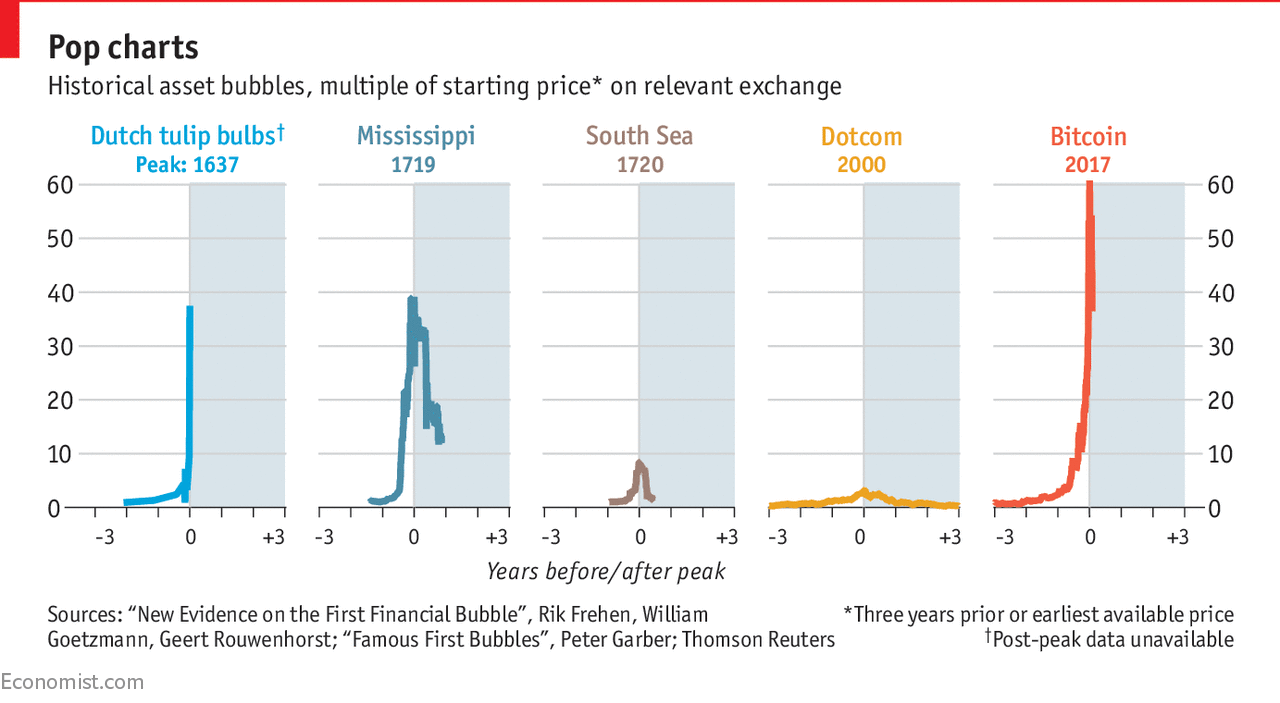
THE past month has seen vertiginous swings in the prices of bitcoin and other crypto-currencies. Most of the moves of late have been downwards, with some days seeing falls of over 20%. News from Asia has driven many of the fluctuations. On January 11th South Korea’s justice minister mooted a plan to ban crypto-currency exchanges, triggering a steep sell-off. Faced with public outcry, the government quickly tried to soften its stance. But last week, the finance minister said the ban remained a “live option”, and bitcoin slid even further.
Although east Asia has generally proven a fertile ground for crypto-currencies, the region’s financial regulators have begun to implement widely divergent policies towards them. China once accounted for over 90% of global bitcoin trading. But alarmed at the way crypto-currencies can evade government oversight, last year it banned domestic exchanges. Japan, by contrast, has given crypto-currencies room to run, deeming them assets that can be used for payments and licensing 11 exchanges.
Virtual currencies have bounced back from past sell-offs, but this has been a big one. At one point bitcoin was down about 50% from its highs in December. Believers in virtual currencies say that one of their selling points is freedom from government meddling. In Asia, the cutting edge of the crypto-world, it is governments that are making—and breaking—their fortunes.
Read Again Broooh https://www.economist.com/blogs/graphicdetail/2018/01/daily-chart-14Bagikan Berita Ini















0 Response to "Crypto-currencies are in a tailspin"
Post a Comment